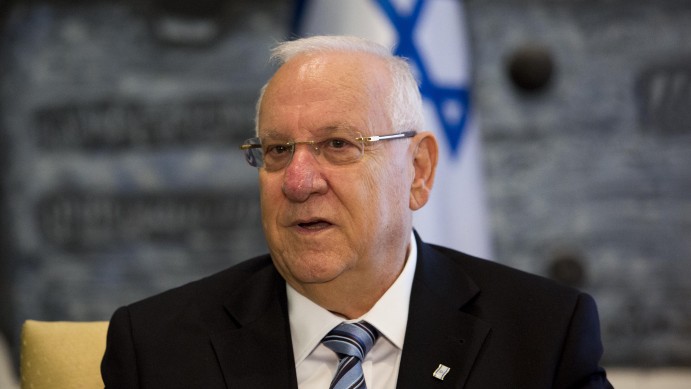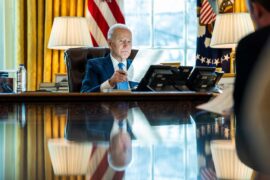Israeli President Reuven Rivlin has allegedly committed to signing the recently passed nation-state law in Arabic, in an act of protest against the legislation that officially lowered the language’s status.
The reported pledge came amid protests against the contentious law, which enshrined the State of Israel as the nation-state of the Jewish people and downgraded the Arabic language from official to “special” standing.
The law also cryptically stipulated that “this clause does not harm the status given to the Arabic language before this law came into effect.”
Since taking office, President Rivlin has been outspoken in both his support for minority rights and his rejection of partitioning the country into two states. He has also advocated equal citizenship for Palestinians on several occasions.
In many ways, Rivlin represents a new political center that takes the positives from each side of Israel’s superficial linear spectrum.
What has until now passed as an Israeli political center has taken the negative features of the Israeli left and right. The Israeli left has been known to promote Palestinian rights and advocate a two-state solution to achieve those rights. The Israeli right is generally associated with efforts to maintain the disputed Jewish heartland under Israeli control while not caring about the rights of the Palestinian population.
Unlike the traditional Israeli center, which seeks to surrender the West Bank and partition the land in order to be rid of unwanted Palestinians, Rivlin champions a position that remains loyal to both the Jewish homeland and moral standards for minority rights and social justice.
Throughout the legislative process, Rivlin was vocal in his opposition to the nation-state bill.
On Monday, Dr. Thabet Abu Rass of the Abraham Fund, which works to foster Jewish-Bedouin coexistence, claimed that President Rivlin made the private comment about signing the nation-state law in Arabic at a conference in the Bedouin community of Kuseife.
Abu Rass said that during the conference he personally asked Rivlin to speak out against the law, adding that it has caused “demoralization” within the Palestinian community.
Abu Rass said that at the end of the conference the president told him that “I can’t refuse to sign the law, because then I will have to resign. But if I sign it, I will sign in the Arabic language.”
A spokesperson for Rivlin on Tuesday declined a request by journalists to comment on the matter.
On Sunday, Rivlin met with regional council heads from the Druze community, who also slammed the law. He told them that “our partnership exists at the core and foundation of this state.”
“I expressed my opinion during the Knesset discussions,” he added.
“I have no doubt that you are legally equal, and we should make sure that you also feel equal.”
The nation-state law — which for the first time enshrines Israel as “the national home of the Jewish people” and says “the right to exercise national self-determination in the State of Israel is unique to the Jewish people” — has sparked widespread criticism from Israel’s minority communities, Western governments and Diaspora Jewish groups.
The legislation, proponents say, puts Jewish values and democratic values on equal footing. Critics, however, say the law effectively discriminates against Israel’s minority communities.
The law became one of the state’s basic laws that, like a constitution, underpin Israel’s legal system and are more difficult to repeal than regular laws.





